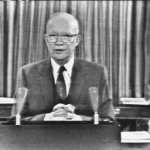
The apparent madness in the Obama administration starting a new Cold War with Russia and China makes sense if viewed from the perspective of the Military-Industrial Complex, which must justify ever-larger budgets, as Chuck Spinney explains.
The U.S. mainstream media avoids the word “coup” when a disfavored leader is ousted, but the silence around Iran’s 1981 coup also may have served Ronald Reagan’s political self-interest in keeping secret his own “coup,” as Mahmood Delkhasteh reflects.
Neocon domination of the U.S. foreign policy establishment has foreclosed serious debate over Israel’s strangling control of Palestinian water resources and what that means for the future of that ghetto-ized population, as Chuck Spinney explains.
As Iran and Russia sense they’ve been “had” by President Obama over the Syrian “cease-fire” — and other U.S. deceptions — the prospects rise for a climactic battle in Syria, writes ex-British diplomat Alastair Crooke from Beirut.
The Orlando massacre was primarily a hate crime against gays, aided by lax gun laws, rather than a terror strike by an ISIS acolyte — and thus the media/political analysis is wide of the mark, writes Lawrence Davidson.
Hillary Clinton has shown no real remorse over her support for neocon “regime changes,” aggressive wars and belligerence toward Russia, leaving the oft-obnoxious Donald Trump as the relative peace candidate, says John V. Walsh.